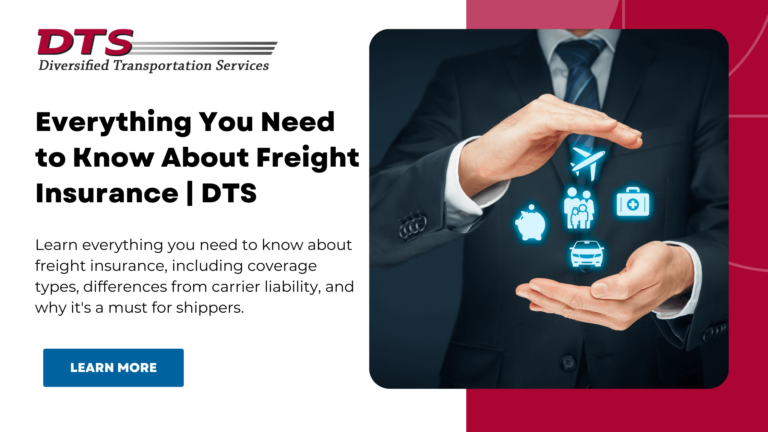
In an ideal world, our shipments would make it from A to B with zero damage or disruption. Yet as many of us know, it’s not always the case. The sheer complexity of the freight industry often means we have little control over the state of our shipments. Accidents happen, and things can slip through the cracks. So, unless you’re personally taking your shipment from your warehouse to your customer, you need to have a plan B. That plan B usually comes in the form of freight insurance.
Freight insurance is exactly what the name implies — an insurance policy covering your shipments on their journey.
According to your plan’s coverage, it can include protection for the full or partial value of the goods being shipped. This, of course, depends on the kind of insurance you’re willing to pay for. If you’re shipping high-value items, you’ll want to cover your entire shipment. If the financial loss of a shipment wouldn’t be too damaging, you could cover a percentage of the cargo’s value to help ensure you are at least getting back your manufacturing costs.
Taking out freight insurance is the responsibility of the shipper. Carriers will have their own insurance, which we’ll get to shortly, but the shipper needs insurance to be fully covered.
Freight insurance follows many of the same principles as other types of insurance. You select a policy that best fits your needs and pay a premium based on the contract. In the event of any incidents, you file a claim with your insurer and will be compensated based on the policy terms you’ve chosen.
When you’re looking at shipping options, you’ll sometimes see carrier liability thrown around in the same sentence as freight insurance. While both offer some level of coverage in the event of any issues, the two differ significantly, and choosing the wrong option may leave you out of pocket.
Carrier liability refers to the amount of responsibility the carrier accepts for any damage, loss, or theft that occurs during shipping. The cost of carrier liability is generally included in the quote your carrier gives you, but it will usually cover significantly less than the total value of your cargo.
Key differences between freight insurance and carrier liability include:
To learn more about the differences, check out our in-depth blog post on freight insurance vs. carrier liability.
Some businesses are more than happy to send their goods out with carrier liability as their only fallback. The temptation is always there because you always hope things go well during shipping — especially when you’ve carefully vetted carriers to find the perfect one for your cargo.
Your goods making it from the warehouse to your customers is the difference between profit and loss. It’s just that simple. If your shipment is lost, stolen, or damaged in transit, you’ll be on the hook for a replacement shipment, meaning you’re being paid once for two shipments. That’s not going to do your bottom line any favors.
Finding the right freight insurance can be a little tricky with so many different types available. Typically, you will see cargo insurance split into different categories based on the method of shipping, for example:
However, many insurers have started to lump these types together to offer a more comprehensive cover to ensure your cargo’s entire journey is covered regardless of transportation method. This is helpful, as plans can change last second and a carrier may find it appropriate to change the transportation method. This is also helpful for trucks that need to cross bodies of water to get to their destination, which often happens with international shipments.
Aside from transportation types, freight insurance is often categorized according to coverage details. The Institute Cargo Clauses sets out three clear types of insurance:
Each type represents a different level of insurance on a shipment. This makes it easier for carriers, insurers, and shippers to understand what level of coverage any shipment has. Each type offers a different level of coverage during the shipping process. Type A coverage can cover almost every possibility, Type B can cover any partial loss as a total loss event, and Type C can cover total loss events only.
You might be coming away from this more confused than ever. There’s a lot to learn about freight insurance and it’s crucial for shippers who want to avoid financial losses that may come with simple carrier liability. There are also a lot of options when it comes to cargo insurance, including all-risk, with average, and free of particular average insurance.
If you feel like you need a hand navigating all of this, DTS can help. At DTS, our extensive experience means shipping and logistics guidance you can trust. Contact us today for advice about freight insurance and any other freight transportation services needs.
Whether you're a company looking to improve one facet of your supply chain, your entire supply chain, or simply looking for a transportation and logistics consultation, we can help.